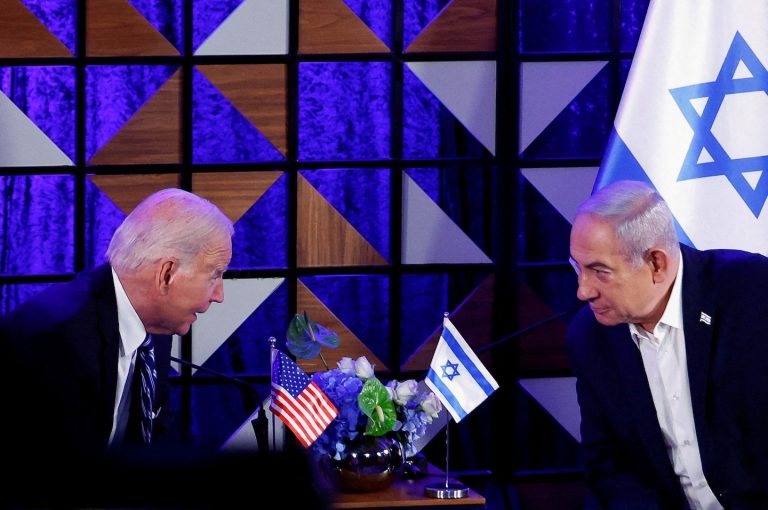Much of the 45-minute conversation focused on a proposal for an extended humanitarian truce in the war between Israel and Hamas that would allow for the release of hostages still held by the militant group, according to a senior administration official.
The official, who briefed reporters on the condition of anonymity under rules set by the White House, said protecting civilians in Gaza “is an ongoing discussion between us and the Israelis,” even as Biden shares Israel's goal of defeating Hamas.
The official said that how to rescue civilians from an Israeli attack on the city located in the far south of the Gaza Strip “is a big question.” Most of Rafah's residents moved there to avoid fighting elsewhere in the Strip. They live in temporary shelters and are supported almost entirely by the little humanitarian aid they are allowed to pass through the Egyptian border.
“The president and the prime minister had a great deal of detail about this. “I think our position on that is very clear,” the official said. The United States will not support such an operation unless Israel has a plan to protect and sustain civilians “that is already planned, prepared, and implementable.”
In his strongest public statement yet, Biden told reporters on Thursday that Israel's military campaign in Gaza, which local health officials said has killed nearly 28,000 people, had “gone too far.” Sunday's conversation was the first between the two leaders since January 19.
Hours before his phone call with Biden, Netanyahu told ABC’s “This Week” that Israel “is doing everything in its power to reduce civilian casualties.” …But the one thing we will not do is we will not allow Hamas to emerge victorious.”
In response to a question about how and where Israel proposes to care for and move more than a million people to safety from Rafah, Netanyahu pointed to “the areas that we cleared, north of Rafah – and there are many areas there.” But we are working on developing a detailed plan to do this.”
“Those who say that we should not enter Rafah under any circumstances are basically saying, lose the war. “Keep Hamas there,” Netanyahu said. Israel said that senior Hamas leaders moved their operations to southern Gaza to escape Israeli attacks.
The phone call between the two leaders came before the visit of CIA Director William Burns to Cairo on Tuesday to continue negotiations with Egypt and Qatar regarding the implementation of a framework proposal to stop the fighting to enable the release of hostages still held by Hamas inside. Gaza. The proposal sent two weeks ago to both sides of the conflict calls for a six-week ceasefire that would allow for the exchange of civilian hostages for Palestinian prisoners held by Israel and a significant increase in humanitarian aid.
The United States hopes the initial pause will build momentum for extensions that would allow the release of all hostages, including Israeli military personnel, as well as the bodies of more than two dozen of the approximately 1,200 people killed by Hamas fighters who invaded the south of the country. Israel on October 7, igniting the current war.
“The framework is very much in place,” the senior administration official said. “There are certainly gaps to fill. Some of them are important. But there has been real progress over the past few weeks and we are now seeking to do everything we can to build on it.
Hamas' response to the proposal, which was conveyed to negotiators last week, called for the release of thousands of Palestinian prisoners, including some who received long sentences for serious crimes. It also insisted that Israel withdraw all its forces from Gaza before discussions begin on the second phase of the release. Secretary of State Antony Blinken, who was in Tel Aviv at the time, called some of Hamas' demands “unacceptable,” but said the response had provided “space” to work on them.
Despite Netanyahu The senior official said that despite the public negative response to the proposal, “the framework has not been rejected.” “There are gaps to fill and some differences are significant. …But compared to where we were a month ago, there has actually been significant progress so far.”
Drawing the contradictory relationship between the possible Israeli ground attack In Rafah, and the possibility of fighting stopped, the official said: “You will not get a hostage deal unless Hamas is subjected to great pressure.” …It's something Israelis tell us all the time. “It's something we agree with.”

